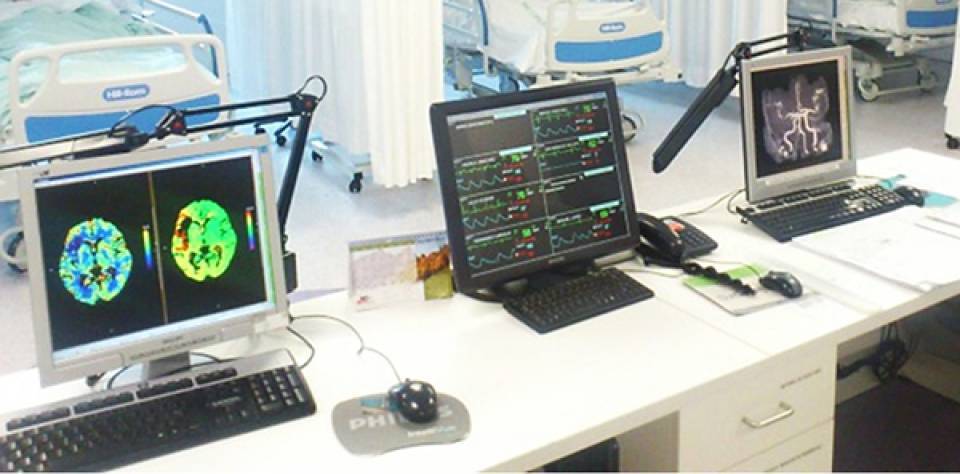Stroke is a disease with a very high social impact. It is the leading cause of death among women and the third among men, with an incidence in Spain of about 200 strokes per 100,000 people. The World Health Organization (WHO) estimates that about 15 million people suffer a stroke every year worldwide, and that one in six people will develop this disease throughout their lives. In addition, one-third of these patients will live with a severe disability.
The compounds derived from uric acid, Ox-01 and Ox-02, act as a potent antioxidant. Their use in the treatment of stroke is based on the reduction of the negative effects caused by the disease thanks to an increase in neuroprotection. Thus, a significant reduction of the patient's permanent disability is achieved, which improves the ability to perform daily tasks and, ultimately, the quality of life. The most advanced of the two compounds, Ox-01, has completed the IIb phase of its clinical development with very promising results in the treatment of acute ischemic stroke.
"With the creation of FreeOx Biotech we have a great opportunity to change the paradigm of neuroprotection and the treatment of stroke in the years to come," explains Dr. Ángel Chamorro, who is also Scientific Advisor at FreeOx Biotech. Carlos Lurigados, CEO of the company says that, "we are excited and convinced that FreeOx Biotech will offer in the near future therapeutic alternatives to diseases that currently have no treatment."
About FreeOx Biotech, S.L.
FreeOx Biotech, S.L. is an innovative company, a spin out of Hospital Clínic-IDIBAPS, established in March 2017 whose mission is the discovery and development of medicines and medical technologies aimed at reducing the effects of oxidative stress in the body, especially those related to the cardiovascular and neurological system. FreeOx Biotech has a scientific advisory team with leading international experts: Dr. Angel Chamorro, head of the Functional Unit of Cerebral Vascular Pathology at Hospital Clinic of Barcelona, a pioneer in the discovery and identification of neuroprotective therapies; Dr. Tudor G. Jovin, Professor of Neurology and Neurosurgery and Director of UPMC Stroke Institute at the University of Pittsburgh; Mr. Angel Honrado, expert in management and fundraising in international research programs; Dr. Joan Bigorra, Director of Strategy and Innovation at the Barcelona Institute for Global Health (ISGlobal) and an expert in medical innovation; and Mr. Carlos Lurigados, the CEO of the company, who has over twenty years of experience in research, development, innovation and entrepreneurship in the field of life sciences.
About the KTT Office
The Knowledge and Technology Transfer Office (KTT) of IDIBAPS manages the intellectual and the industrial property of the IDIBAPS, the Clínic Foundation for Biomedical Research and the Hospital Clínic de Barcelona. The KTT office works to ensure that research results reach the society. In short, it manages the strategy for the protection of research results and negotiates licenses with industry. It also supports the creation of new businesses based on the knowledge generated in these institutions. The ultimate goal is to transfer knowledge to reach the market and therefore the society.

